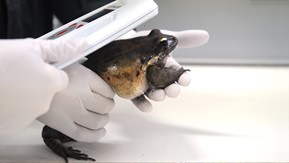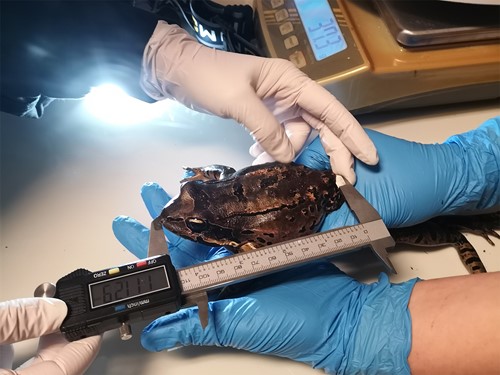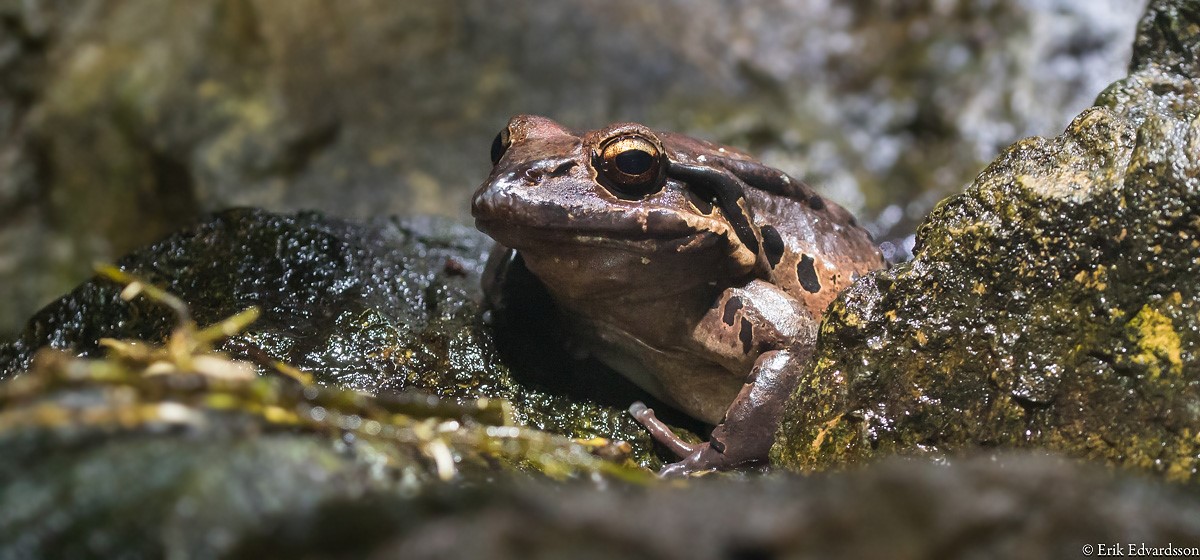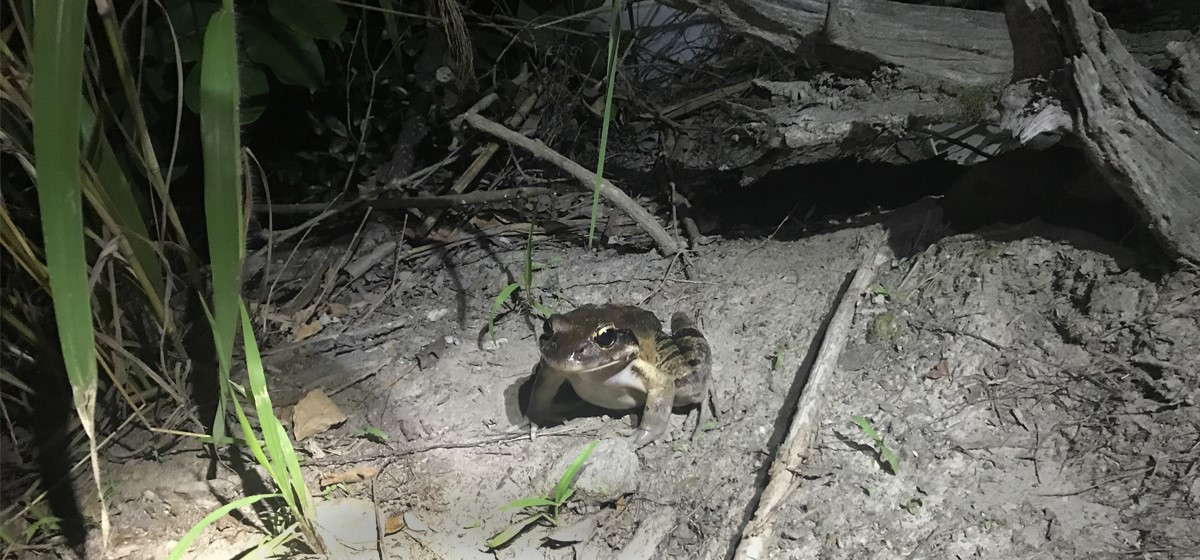Mountain chicken frog
The mountain chicken frog (Leptodactylus fallax) is one of the largest frogs in the world found only on the islands of Montserrat and Dominica in the east Caribbean Sea. The species is listed as Critically Endangered (CR) on the IUCN red list.
The species has had a rough time in the wild. First threatened by habitat loss, introduced predators and over-exploitation, it has been brought to the brink of extinction by the introduction of the fungal disease Chytridiomycosis onto both islands. The wild population across both islands is currently estimated to be about 100 individuals.
In response to these population declines, an ex situ safety-net populations were established in 2009 at several institutions across Europe. The Mountain Chicken Recovery Programme (MCRP) is a collaboration between Nordens Ark, Chester Zoo, Durrell Wildlife Conservation Trust, Paignton Zoo and the Zoological Society of London and the governments of Montserrat and Dominica. The goal of the programme is to save this species from extinction.
What we do at Nordens Ark
When the fungus was found on Montserrat a rescue mission was done to save 50 of the last healthy mountain chickens off the island and send them to zoos across Europe. These individuals were used to establish an ex-situ safety net populations. Nordens Ark joined these efforts in 2015 by building a breeding facility where a group of Mountain chickens are kept under quarantined conditions.
The frogs live in large terrariums, with interior, lighting and temperature regulated to mimic the conditions of the frogs’ natural habitat. Keeping frogs under quarantine conditions means, among other things, that the animal keepers have change clothes and shoes before entering the facility and follow strict to do clothing and shoe change to carry out care and follow strict quarantine rules, which means that the facility is not open to the public.

The MCRP has conducted significant research and developed management techniques to prevent extinction of the mountain chicken but no methods have yet been successfully developed to mitigate the impacts of Chytridiomycosis on the species in the wild. As efforts on a global scale have so far failed to develop a cure for chytridiomycosis, it is recognised that intensive long term management of the mountain chicken will be required. The next phase of the programme on Montserrat involves the construction of a semi-wild enclosure where we can test the ability of captive-bred frogs to coexist with chytrid infection through environmental manipulations to create conditions that may be suitable for the frogs but suboptimal for the fungus.
News from the project - March 2024
During the summer, Nordens Ark participated in a large-scale survey of mountain chicken frogs on the small island of Dominica in the Caribbean. A total of 11 different organizations and 28 experts from several countries participated in the survey. The survey is the largest ever for the species and an important step in obtaining an updated population estimate. Unfortunately, only 21 individuals could be found, which is a clear sign that the situation for the species is dire and our efforts in breeding and rearing are needed now more than ever. A glimmer of light in the inventory is that a frog at the age of 11 was found. That it has managed to survive both diseases and natural disasters gives hope for the future.
Nordens Ark was one of only a few parks that succeeded in reproduction of mountain chicken frogs in 2023. Remarkably, the spawn were unusually many. Why the spawn have been sparse in recent years is something that has puzzled many, but happily we now see that it can turn around.
In collaboration with
Chester Zoo, Durrell Wildlife Conservation Trust, Zoological Society of London, Forestry, Wildlife and Parks Division, Dominica and Department of Environment, Montserrat
Sponsors:














